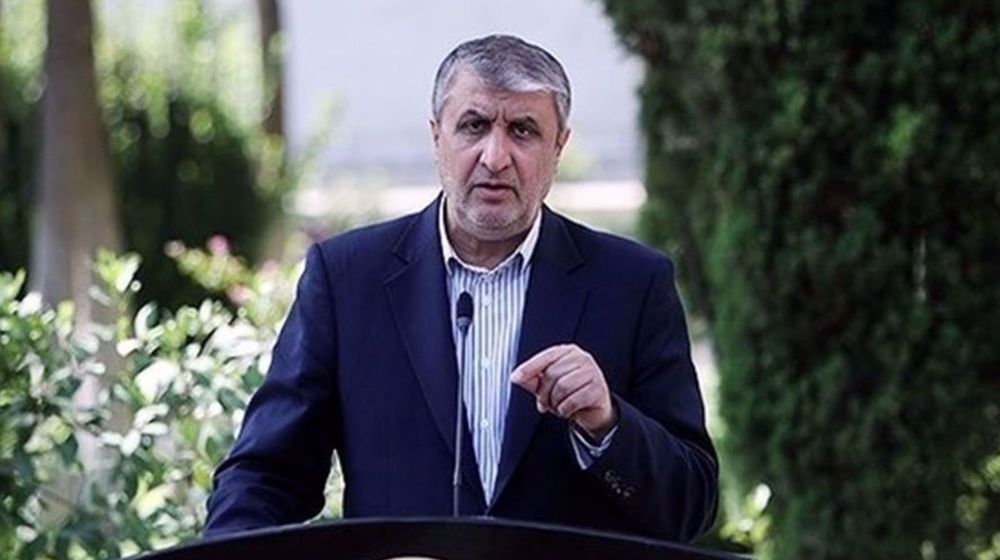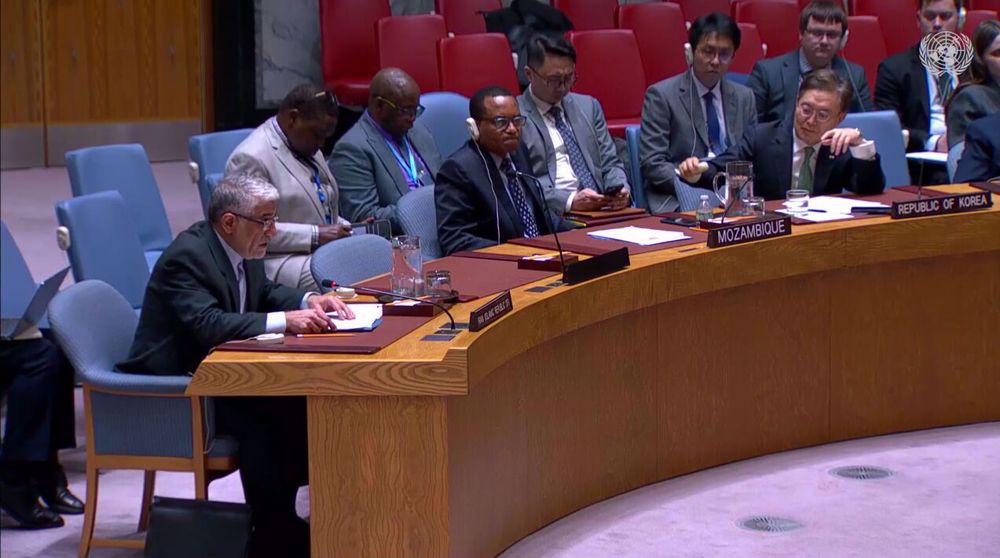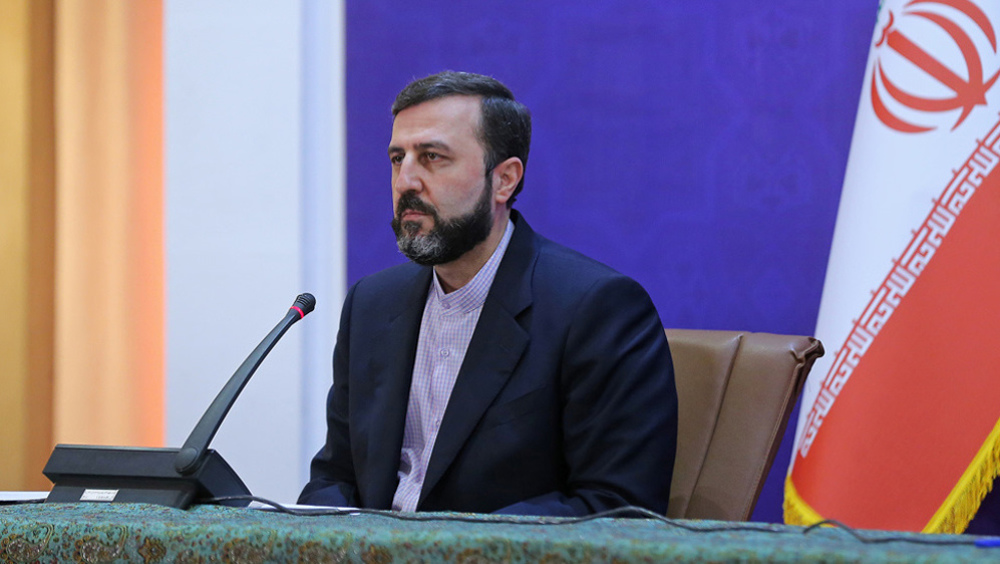Iran, P5+1 start drafting on sanctions removal: Araqchi
A senior Iranian nuclear negotiator says Iran and the P5+1 group have started drafting the text of mechanisms related to the removal of sanctions imposed on Tehran over its peaceful nuclear program.
Speaking to Press TV following meetings with representatives of the P5+1 group in the Austrian capital city of Vienna on Friday, Iran's Deputy Foreign Minister for Legal and International Affairs Abbas Araqchi said that the US negotiating delegation gave the Iranian nuclear team “very useful” explanations regarding the removal of anti-Iran sanctions.
“This time we only worked on the question of sanctions but the fact is that we had worked on other issues some months ago; I think in July last year. We have already [drafted] some parts of our text. We had already done some drafting in the past, but then it was stopped because we had no solution on major issues. Now we have solutions in almost all issues. What we have to do is to write down these solutions in form of a draft of an agreement. We have also started now from the sanctions and we will go to other issues next time,” he said.
He added that the American and European negotiators resolved some ambiguities regarding the lifting of sanctions.
Noting that drafting has begun on the issue of sanctions, Araqchi said the US team "gave us explanations [about removal of sanctions] which were very useful."
He said there were also positive talks about a resolution passed by the US Senate Foreign Relations Committee, which will be discussed on the Senate floor next week and is intended to give US Congress a final say over a possible nuclear accord with Iran.
“Some remarks by officials in the US created lots of question marks, and also the act by the Congress to introduce a new bill … [which] actually added to this complicated situation. We had very good discussions specially with the US delegation asking them to clarify their position regarding sanctions, to clarify what is going on in the Congress and I think the explanations by the US delegation was very useful,” he said.
The Iranian deputy foreign minister further noted that the negotiating sides have made steady, but slow progress, adding, "We are working on a dispute settlement mechanism for possibility of violations."
“We are working on a dispute settlement mechanism the details of which are still under consideration. We do attach great importance to the possibility of violation of commitments by either side, especially from the other side, who has unfortunately not a good record on implementing its commitments. We will certainly have a dispute settlement mechanism according to which if any violation would occur, if any misunderstanding emerges, we will go to that mechanism and try to resolve that before we come to a situation to terminate the agreement,” the Iranian deputy foreign minister explained.

Araqchi continued by saying, “Now we have started to work on the draft of the JCPOA. Obviously at the beginning we need to talk about the frameworks and format of such a draft. We have made some progress but very slowly.… The focus of our discussions this time was on the question of sanctions and we tried to start drafting by in fact the question of sanctions and the related issues.”
“It is a very difficult job to reach a realistic agreement by June but we are hopeful. We think if all parties are serious which they are we can conclude these discussions and talks before the end of June. This is quite possible and we think the agreement is at reach, but of course at any time … unpredictable events may cause problems in the way, but if we go in a normal pace we can finish the job,” he concluded.
Representatives of Iran and the P5+1 group held intense talks in the Austrian capital in the third day of their latest round of negotiations over the Islamic Republic’s nuclear program.
The talks in Vienna are aimed at drafting the text of the Joint Comprehensive Plan of Action (JCPOA) according to the parameters set through a mutual understanding reached in the Swiss city of Lausanne on April 2.
In the morning, Iran's deputy foreign ministers Abbas Araqchi and Majid Takht-e Ravanchi met with their Russian and Chinese counterparts.
At the same time, experts from negotiating parties held a concurrent meeting. The expert meeting was focused on the mechanism for removal of anti-Iran sanction.
Later in the afternoon, Iranian deputy foreign ministers sat for negotiations with representatives of three European countries, France, Germany and the UK followed by another meeting with the US Under-Secretary of State for Political Affairs Wendy Sherman and EU political director, Helga Schmid.
The new round of the talks between representatives of Iran and the P5+1 - the United States, Russia, China, France, Britain, and Germany – lasted three days with the aim of drafting a nuclear accord.
The talks are scheduled to resume on the sidelines of the nuclear Non-Proliferation Treaty review conference in New York on April 27.
SF/SS
VIDEO | Press TV's news headlines
Iran says Christmas opportunity to remind ourselves of Jesus Christ call for 'justice, peace'
VIDEO | Eyewitness video shows moment of plane crash in Kazakhstan
VIDEO | Lebanese Christians celebrate Christmas over ruins
Iran FM: ‘Too early’ to predict Syria’s future for those thinking ‘victories’ achieved
The big role of steel industry in Iran’s development
Yemen fires second hypersonic missile at Israeli targets in as many days
UK suspends 6,500 Syrian asylum claims after Assad's fall









 This makes it easy to access the Press TV website
This makes it easy to access the Press TV website